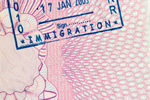Expats heading to Saudi can trust local banks

Expats heading to Saudi can trust local banks
The good news for relocating expats heading to Saudi Arabia is that the kingdom has one of the lowest rates of bank fraud on the planet. The kingdom’s banks, it seems, play a vital part in raising agents’ awareness of the ever-increasing numbers of customers taken in by sophisticated fraudsters. Recently, the ninth in a series of reports on bank fraud, its risks and how to identify them was issued, with more warnings on the way.
According to a high-ranking Saudi official from the Committee on Information and Awareness Raising in Saudi Banks, the world economy is losing billions due to the increasing numbers of frauds. The committee’s campaigns, he said, target both banks and consumers in order to ensure neither group fall foul of fraudsters. The precautionary measures taken, he added, are the reason behind Saudi’s low rates of bank fraud and consist of four major points of reference – fake investment offers, financial transactions involving anonymous senders, fake recruitment and the so-called fast-earning, high risk investments.
Meanwhile, expat professionals taking advantage of the falling pound to increase their UK buy-to-let holdings are being advised they may be in for an unpleasant shock in the form of increased HMRC scrutiny of their status as landlords. The British taxman is politely suggesting those who are expat landlords should join its new Let Property Campaign in order to update their tax liabilities, especially if returns have not been filed to date.
Non-residence as a landlord is classified as renting out a house, apartment, houseboat or permanently-sited caravan on an assured tenancy agreement by anyone living outside Britain for over six consecutive months. For non-resident landlords who prefer not to join the ‘campaign’, penalties for tax avoidance will involve a 100 per cent surcharge on tax owed.
Expat landlords with mortgages, those who employ rental agents, those who have tenants on state benefits and those who openly advertise their properties are likely to already be on HMRC’s list as it regularly collects information by default from online property pages, local councils, letting agents and lenders.
Related Stories:
- Expats find peace in the covid-19 refuge of Dahab town - July 20, 2020
- Expats in Malaysia still banned from overseas travel - July 17, 2020
- Asian tiger economies reach out to expats in Hong Kong - July 16, 2020
- China hits its expats with 45 per cent tax on overseas earnings - July 15, 2020
- Saudi extends visas and permits of expat professionals trapped overseas - July 14, 2020
Latest News:
- Tips on a trouble-free relocation as an expat overseas - July 20, 2020
- Expats find peace in the covid-19 refuge of Dahab town - July 20, 2020
- Is Kuwaitization the unintended result of the oil price crash? - July 20, 2020
- Expats unhappy abut changes to Korean points-based visa system - July 17, 2020
- Chiang Mai and Bangkok no longer bargain locations for expats - July 17, 2020
- Expats in Malaysia still banned from overseas travel - July 17, 2020
- Vietnam welcomes expats to its safe, affordable lifestyle - July 16, 2020
- Asian tiger economies reach out to expats in Hong Kong - July 16, 2020
- HSBC Asia to cut back on internal expat relocations - July 16, 2020
- Tips on integrating for newly-arrived expats - July 15, 2020


